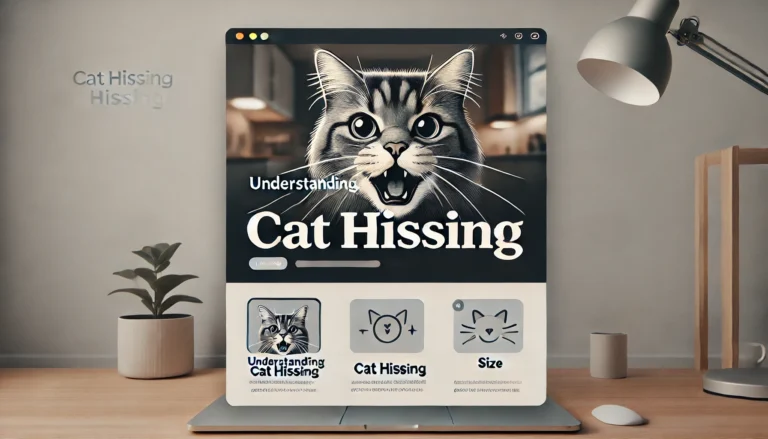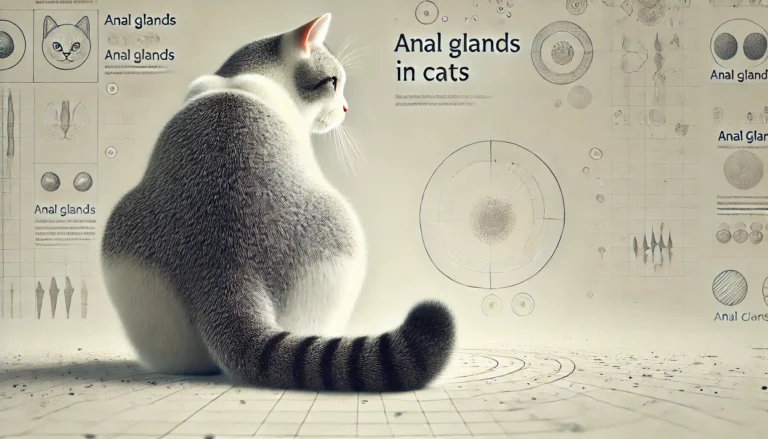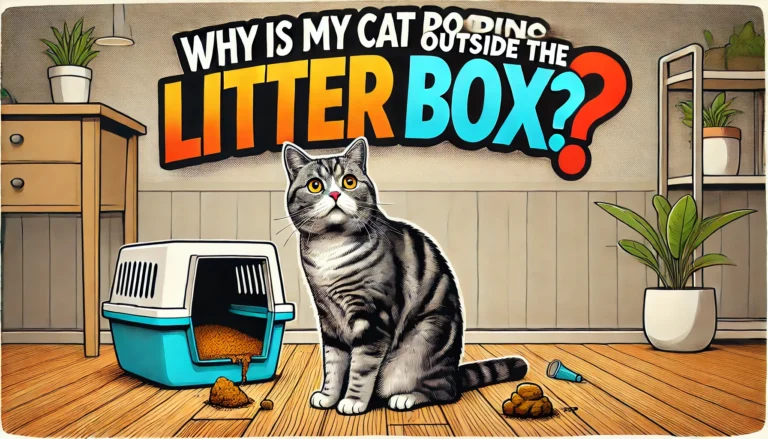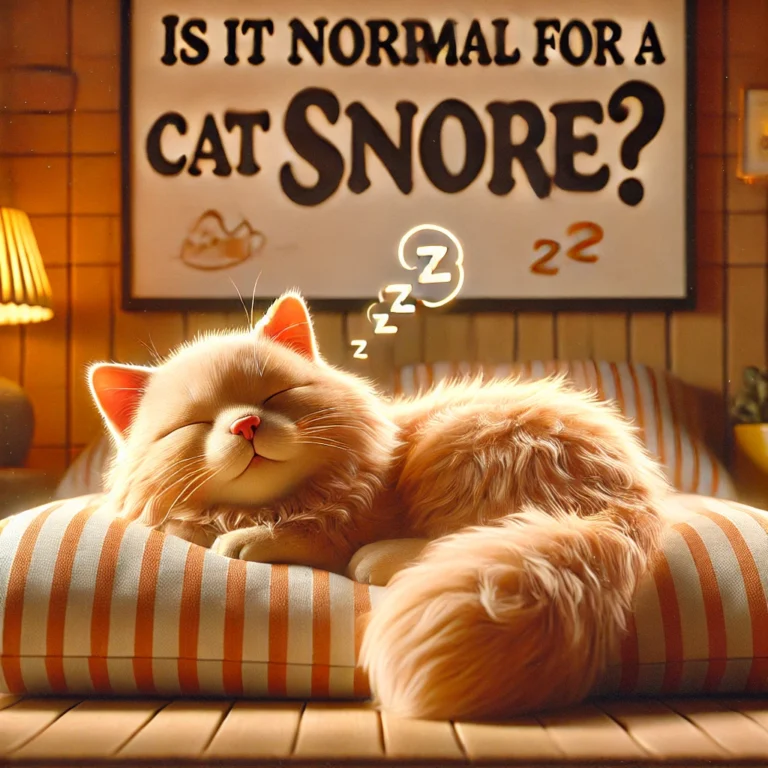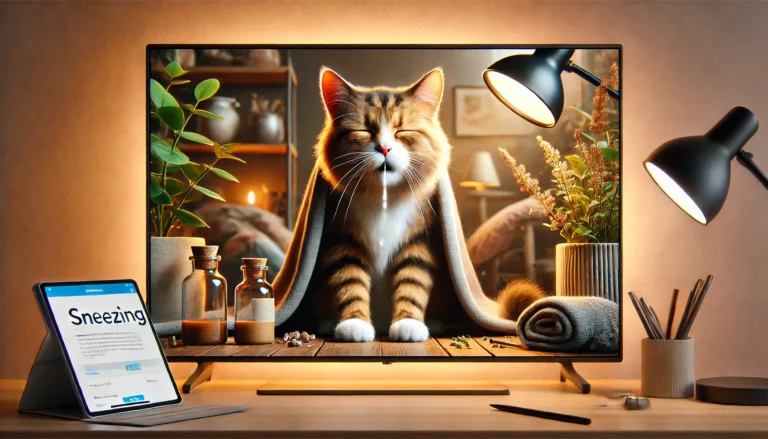bad breath in cats
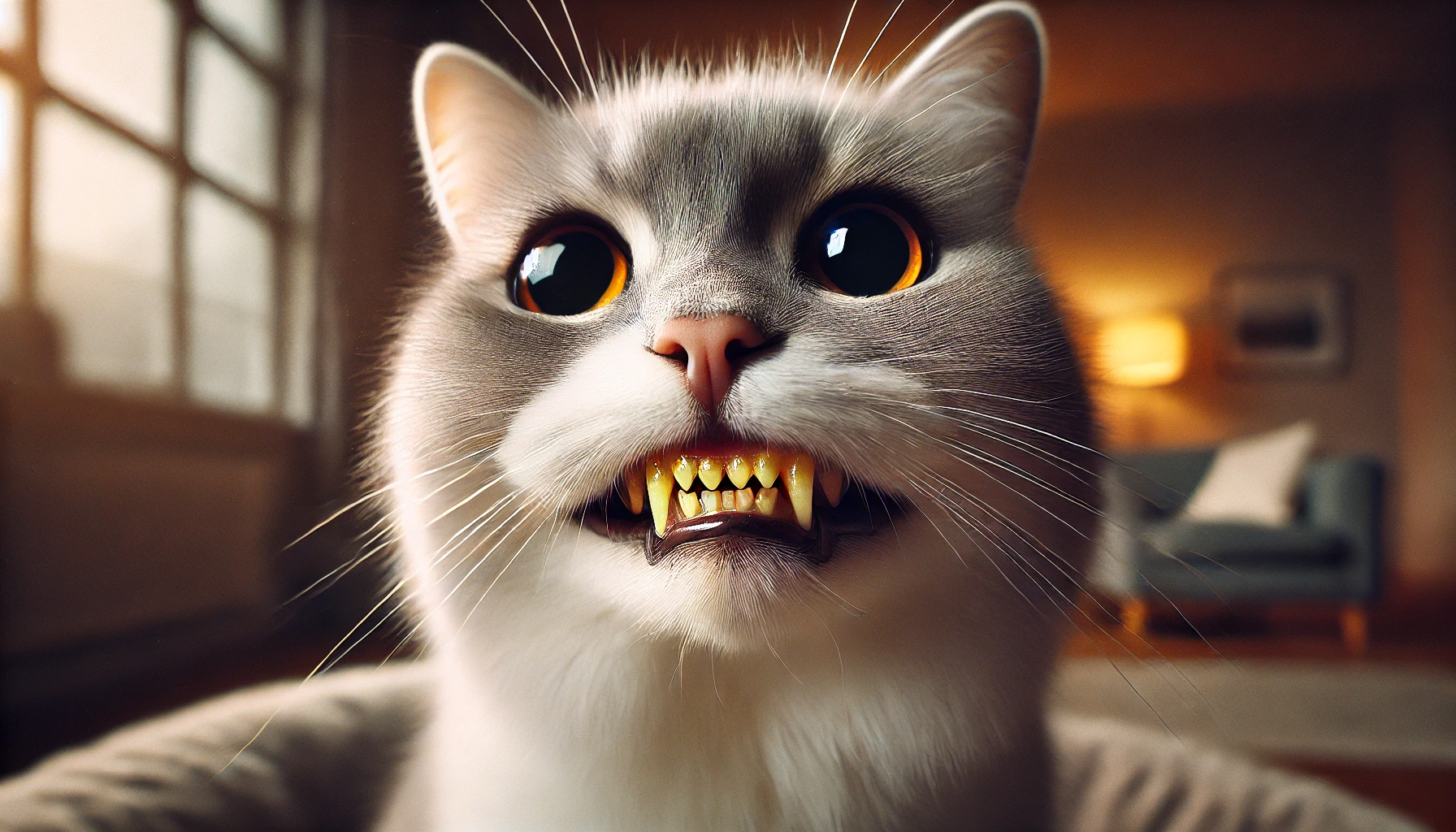
Bad breath in cats, also known as halitosis, is a common but often ignored issue among cat owners. While it’s easy to dismiss a little odor from a cat’s mouth as an aftereffect of food or a quirky personality trait, persistent bad breath can be a sign of something much more serious. If your cat’s breath smells foul or unusual, it may indicate dental issues, digestive problems, or even more severe medical conditions such as kidney or liver disease. In this detailed guide, we will cover everything you need to know about bad breath in cats, including its causes, symptoms, and treatment options, and we will answer the question: Why does my cat have bad breath?
What is Bad Breath in Cats?
Bad breath in cats is a term used to describe an unpleasant odor that emanates from the cat’s mouth. This odor can vary in intensity and type, ranging from mild to extremely foul. The smell may be due to various reasons, some of which are temporary, but persistent bad breath should always be investigated further. It can be associated with conditions like gingivitis, periodontal disease, and even systemic issues like diabetes and kidney disease.
The medical term for bad breath is halitosis, and it is one of the most common signs of oral health problems. Understanding the cause of bad breath in cats is critical because it can be a clue to more serious health concerns. If your cat has bad breath, it is important to take note of the type of smell, as this can help pinpoint the root cause.
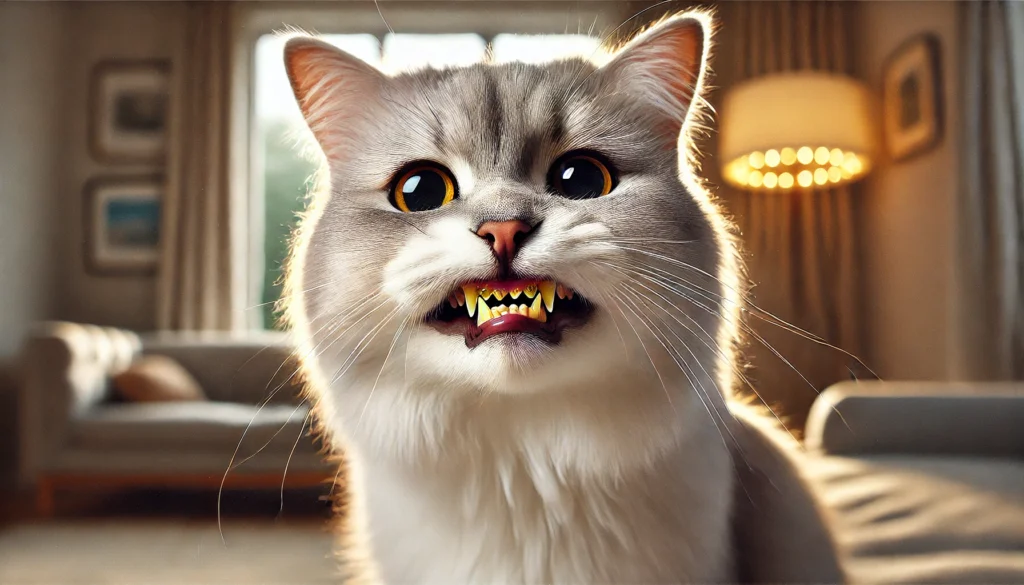
Common Causes of Bad Breath in Cats
1. Dental Disease: The Leading Cause of Bad Breath in Cats
One of the most common causes of bad breath in cats is dental disease. Much like humans, cats can develop a variety of oral health problems, including gum disease, tooth decay, and abscesses. These issues can lead to a buildup of plaque and tartar, which in turn causes foul-smelling breath.
Dental issues such as gingivitis, periodontal disease, and tooth abscesses can all contribute to halitosis. The bacteria that cause these conditions produce sulfur compounds, which are responsible for the unpleasant odor. If you notice that your cat’s breath stinks or that it has terrible breath, it may be a sign of a dental problem.
Symptoms of Dental Disease in Cats:
- Cat’s breath smells like death or has a horrible breath odor
- Swollen or bleeding gums
- Difficulty eating or chewing
- Excessive drooling or pawing at the mouth
- Brownish teeth or tartar buildup
Fixing a Cat with Really Bad Breath Due to Dental Disease: If your cat has bad cat breath caused by dental disease, a visit to the vet is necessary for a professional cleaning. The veterinarian will perform a thorough cleaning of the teeth, and in severe cases, tooth extraction may be required. Regular at-home care, such as brushing your cat’s teeth with cat-safe toothpaste, can help prevent future bad breath issues.
2. Medical Conditions That Cause Bad Breath in Cats
Several medical conditions can also lead to bad breath in cats. These conditions typically produce a specific smell that can help diagnose the underlying problem.
- Kidney Disease: When a cat’s kidneys are not functioning properly, toxins build up in the bloodstream, and the cat may develop a strong, ammonia-like odor in its breath. This is a common sign of uremic halitosis.
- Diabetes: Cats with diabetes often have sweet-smelling breath, described as a fruity or acetone-like odor. This occurs because of the presence of ketones, byproducts of fat breakdown, in the blood.
- Liver Disease: If your cat has liver disease, its breath may smell like rotting food or feces. This occurs because the liver is no longer able to filter toxins from the bloodstream.
- Gastrointestinal Issues: Cats with gastrointestinal problems such as acid reflux, inflammatory bowel disease (IBD), or gastritis may have bad breath due to digestive disturbances or bacterial overgrowth in the stomach.
Tips
Osteosarcoma in dogs is a devastating, aggressive cancer that can rob your furry friend of mobility and happiness – early detection is the key to fighting back!
How to Treat Bad Breath Caused by Medical Conditions: If your cat has bad breath associated with kidney disease, liver disease, or diabetes, it’s crucial to seek veterinary care immediately. Treating the underlying condition, whether it’s through medication, diet changes, or other interventions, will help improve your cat’s breath and overall health.
3. Dietary Factors Contributing to Bad Breath in Cats
What your cat eats plays a significant role in their oral health. Certain foods can cause temporary or chronic bad breath. Fish-based diets and wet food with high protein content are common culprits. Stinky cat breath is often linked to strong-smelling foods, such as fish, or poor digestion.
If your cat has stinky breath after eating, it may simply be due to their food choice. In other cases, cats with undigested food or slow digestion may have an odor coming from their stomach or intestines, contributing to bad breath.
How to Fix Stinky Cat Breath from Food: Switching to a high-quality cat food that is designed to promote good digestion and oral health can help reduce bad cat breath. Additionally, offering dental chews or treats designed to reduce plaque buildup can help maintain your cat’s oral hygiene.
4. Respiratory Issues and Foreign Objects in the Mouth
Cats with upper respiratory infections (URIs) or other infections in the mouth may develop bad breath. These infections can lead to bad breath because they cause an overgrowth of bacteria in the mouth. If your cat has foul breath and also displays symptoms like sneezing, coughing, or nasal discharge, this could be the cause.
Additionally, cats that chew on things they shouldn’t may end up with something stuck in their mouths. A foreign object in their mouth can cause infection and a bad odor. This situation requires immediate attention to remove the object and treat any infection.
How to Identify Bad Breath in Cats
As a pet owner, recognizing the signs of bad breath in cats is essential. If your cat’s breath smells like death, fish, or feces, or if their breath is unusually foul, this is a clear sign that something is wrong.
You can identify bad breath in your cat by the following indicators:
- Persistent Foul Smell: If your cat’s breath stinks consistently over time, it’s not just a food issue.
- Behavioral Changes: Cats with bad breath often exhibit changes in behavior, such as refusing to eat or showing signs of pain when eating.
- Excessive Drooling: If your cat’s breath smells and they are drooling excessively, it’s usually a sign of a dental problem or infection.
- Difficulty Eating: Cats with bad breath may avoid food or have trouble chewing, especially if they are dealing with oral pain.
Treatment and Solutions for Bad Breath in Cats
The treatment for bad breath in cats depends on its underlying cause. If the source is dental disease, the best course of action is a professional cleaning. This can often be accompanied by treatments like tooth extractions for severely decayed teeth. Regular oral hygiene, such as brushing your cat’s teeth, can help keep feline halitosis at bay.
For systemic diseases like kidney disease, diabetes, or liver issues, treating the underlying illness is critical. Managing these conditions with the help of your vet can significantly improve your cat’s health and alleviate the bad breath.
In cases where food is the cause, switching to a diet designed for bad cat breath can help. Avoid strong-smelling fish-based foods and opt for a high-quality dry food that supports dental health.
Home Remedies to Treat Bad Breath in Cats:
- Brushing your cat’s teeth daily can significantly reduce plaque buildup.
- Dental treats and chews designed for cats can help clean teeth and freshen breath.
- Water additives specifically formulated for cats can reduce bacteria in the mouth and freshen their breath.
- Herbal remedies like parsley or mint can be used in moderation to freshen breath, but always consult with a vet first.
How to Prevent Bad Breath in Cats
Prevention is always the best approach to maintaining your cat’s oral health. Here are some preventive measures to keep your cat’s breath fresh:
- Routine Vet Check-ups: Regular visits to the vet will help detect dental problems or systemic conditions before they worsen.
- Daily Brushing: Brush your cat’s teeth daily to prevent plaque buildup, the leading cause of bad cat breath.
- Provide Dental Chews: Give your cat special dental chews that help keep their teeth clean.
- Monitor Diet: Feed your cat a high-quality, balanced diet and avoid foods that are likely to cause bad breath.
- Hydration: Ensure your cat always has fresh water to drink, as dehydration can contribute to bad breath.
Conclusion
Bad breath in cats is more than just an unpleasant odor — it can be a sign of an underlying health issue. Whether it’s dental disease, a systemic condition like kidney or liver disease, or something else, bad breath in cats requires attention and care. By understanding the causes of feline halitosis and seeking timely treatment, you can help your cat lead a healthy, comfortable life.
If your cat’s breath stinks, don’t delay in seeking veterinary care. With the right approach, you can fix bad cat breath and ensure your furry friend remains in good health. Remember, a fresh breath is a sign of a healthy cat!
1. What does it mean when your cat’s breath smells really bad?
When your cat’s breath smells really bad, it could be a sign of several potential issues, most commonly related to dental health. Dental disease, such as gingivitis or periodontal disease, often causes foul breath due to bacterial buildup in the mouth. Bad breath could also indicate more serious conditions like kidney disease, liver disease, or diabetes. If the smell is particularly strong and persistent, it’s important to consult your vet to determine the underlying cause and provide appropriate treatment.
2. What can you give your cat for bad breath?
To help alleviate bad breath in cats, you can give your cat dental treats designed to reduce plaque and tartar buildup, which are often the cause of bad breath. Additionally, cat-safe toothpaste and a soft toothbrush can be used to clean your cat’s teeth regularly. Water additives specifically for oral health can also help freshen your cat’s breath. If the bad breath is linked to medical conditions, treating the underlying disease, whether it’s diabetes or kidney disease, is essential. Always consult your vet before using any treatments or remedies.
3. Why does my cat’s breath smell like roadkill?
If your cat’s breath smells like roadkill, this could indicate a serious health problem, often related to liver or kidney failure. The odor is typically caused by the buildup of toxins in the bloodstream that the body can no longer filter properly. In cases of kidney failure, this is referred to as uremic halitosis, and the breath often has a strong, foul, ammonia-like smell. It’s crucial to seek veterinary attention immediately to diagnose and manage the condition.
4. What does kidney failure breath smell like in cats?
When a cat is suffering from kidney failure, its breath may have a distinct ammonia-like or urine-like smell. This condition is known as uremic halitosis. The buildup of waste products, such as urea, in the bloodstream due to kidney dysfunction can cause the breath to smell foul and unpleasant. If you notice this odor, it’s important to consult a veterinarian as kidney disease can be progressive and requires early intervention.
5. What is the last stage in a cat’s life cycle?
The last stage in a cat’s life cycle is typically referred to as senior or geriatric stage. Cats are generally considered seniors after the age of 7, and they enter their final life stage around the age of 12 to 15 years, depending on their health and breed. In this stage, cats often experience a decline in mobility, vision, hearing, and overall health. They may develop chronic conditions like kidney disease, arthritis, or dental problems, which require more frequent veterinary visits. End-of-life care should focus on comfort, pain management, and quality of life.
6. Does bad breath mean kidney failure?
While bad breath can be a sign of kidney failure, it is not always the case. If a cat has bad breath that smells like ammonia or urine (uremic halitosis), it is often associated with kidney disease or kidney failure, as the kidneys are no longer able to filter toxins effectively. However, bad breath can also be caused by dental issues, digestive problems, or other diseases. It’s crucial to see a veterinarian if bad breath persists, especially if other symptoms like increased thirst, urination, or weight loss are present, which are typical signs of kidney failure.

